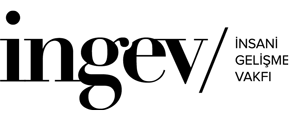It is our hope that the corona virus pandemic has entered a downward trend in Turkey and the world alike. I’d like to call this episode the transition to the post-Corona period. This is an interim phase where we will have to make progress on various fronts. A time of social mobilization awaits us.
In addition to effective central and local government policies, NGOs and funding organizations should also take up important roles in this mobilization. The effectiveness of the coordination between the government, local administrations and NGOs will be the key to successful progress in this period. Just as life has been forcing all decision-makers to make some behavioural changes, it is now challenging the civil society ecosystem to shift its attitudes as well:
- To act quickly (sense of urgency): We should be able to take action quickly by making decisions with minimum bureaucracy rather than lengthy plans and lots of discussions. Less meeting, more work.
- To be flexible: We know that most funds and NGOs work according to long-term plans just as government does. But now, we may be in the most turbulent period ever seen by the world. We must be flexible enough to alter long-term plans and address the emerging issues.
- To adapt: We should be able to adapt the way we work in line with the requirements of this new period. Social support programs should be sustainable under these new conditions.
The interim period of transition to the aftermath of corona will require masterful elaboration in two major areas: (i) supporting employment as well as SMEs and cooperatives which are major sources of economic activity and (ii) spreading and deepening practices of good digital citizenship.
A quick glance into what can be done for the SMEs:
Return-to-work grants; sales development support and training; practical support and trainings for setting up the digital infrastructure required for online sales; assistance for advertising on social media; promotion of business contracts within the supply chain; building consumer communities to push up demand and carrying out awareness raising activities; assistance towards the improvement of sales hygiene.
The common goal of all these support mechanisms is to activate business. We are in the process of “less training, more action”.
A variety of provisions for supporting digital citizenship could also be implemented such as assistance for internet access; assistance for electronic device purchases and development of digital access skills beyond the level of basic literacy. Besides, we should consider shifting the medium of interaction between local governments, citizens and businesses to digital media and supporting this interaction with artificial intelligence algorithms and building databases based on these interactions.
Our attempts in this transition phase to the post-corona period may reduce the severity of damage more than expected.
